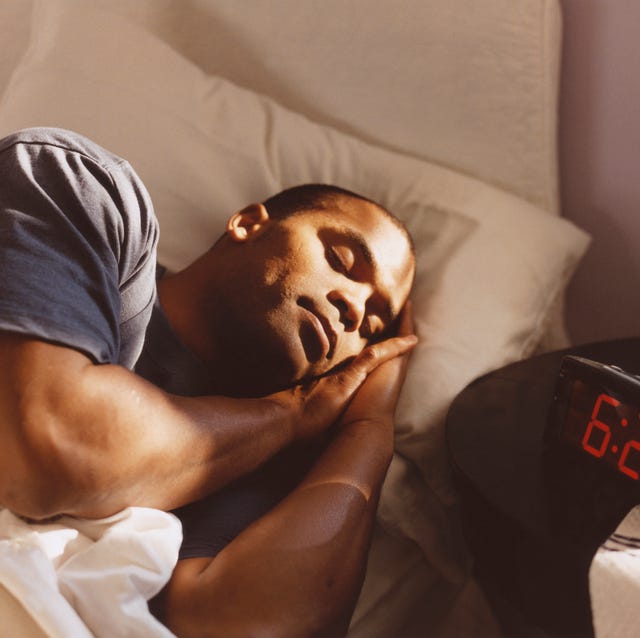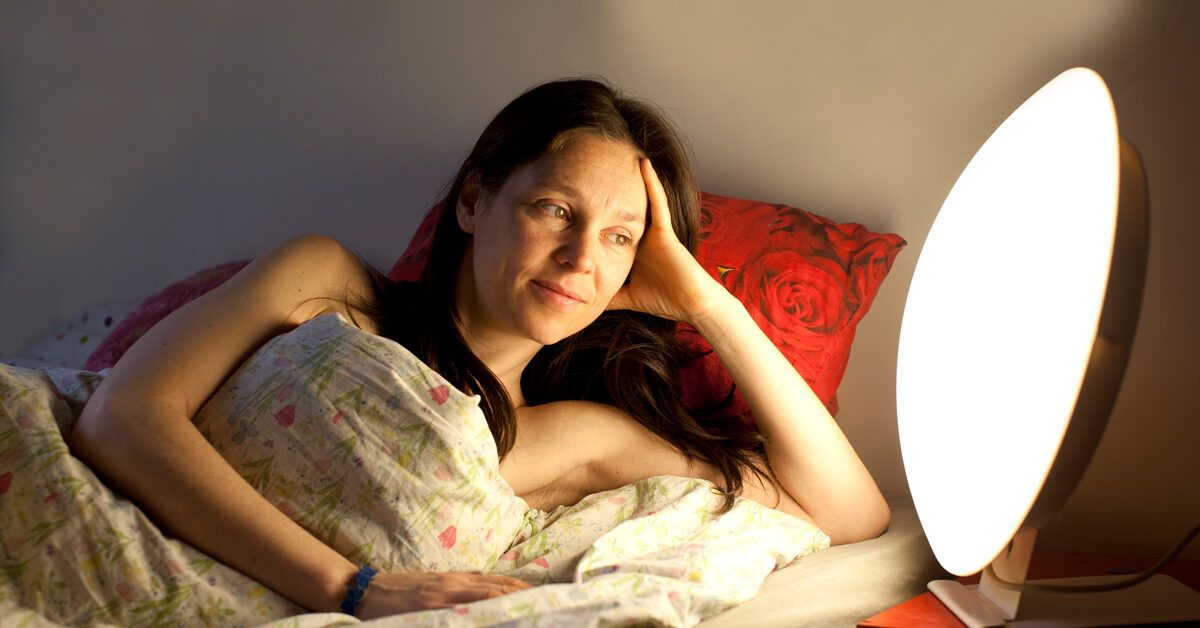Cognitive Behavioral Therapy for Insomnia (CBT-I) - Proven Approaches
Cognitive Behavioral Therapy for Insomnia (CBT-I) - Proven Approaches
Blog Article
Efficient Treatment Solutions for Managing Rest Disorders and Enhancing Peaceful Sleep
In the world of health care, the management of sleep problems and the mission for peaceful sleep are crucial parts of total wellness. As we navigate the complex landscape of rest disorders and seek to improve our sleep experience, a deeper understanding of these therapy services might hold the key to unlocking a much more rejuvenating and fulfilling restorative journey.
Cognitive Behavior Treatment for Sleeplessness (CBT-I)
Cognitive Behavioral Therapy for Sleeping Disorders (CBT-I) is a structured, evidence-based therapy strategy that concentrates on resolving the hidden aspects adding to sleep disturbances. This sort of treatment aims to modify behaviors and ideas that worsen insomnia, eventually promoting healthy and balanced sleep patterns. CBT-I generally involves several key parts, including cognitive therapy, rest restriction, stimulation control, and rest health education.
Cognitive treatment helps people identify and alter unfavorable idea patterns and ideas concerning rest that may be preventing their ability to drop or remain asleep. Sleep constraint involves restricting the quantity of time invested in bed to match the person's actual sleep duration, thereby enhancing rest effectiveness (insomnia therapy). Stimulation control strategies assist develop a strong organization between the bed and sleep by urging individuals to head to bed only when drowsy and to stay clear of participating in promoting tasks in bed
Additionally, rest health education concentrates on creating healthy and balanced sleep habits, such as maintaining a regular sleep schedule, developing a relaxing bedtime routine, and optimizing the rest setting. By addressing these elements comprehensively, CBT-I uses a reliable non-pharmacological treatment for handling sleep problems and improving total sleep high quality.
Rest Hygiene Practices
Having established the structure of cognitive restructuring and behavioral adjustments in addressing sleeplessness via Cognitive Behavior modification for Insomnia (CBT-I), the focus currently changes towards exploring necessary Sleep Hygiene Practices for maintaining ideal sleep high quality and overall well-being.
Sleep hygiene practices encompass a series of behaviors and ecological factors that can considerably impact one's capacity to sleep and remain asleep throughout the evening. Constant sleep and wake times, producing a relaxing bedtime regimen, and enhancing the rest environment by maintaining it dark, peaceful, and cool are important parts of good sleep hygiene. Restricting exposure to screens before going to bed, staying clear of stimulants like caffeine close to bedtime, and engaging in routine exercise throughout the day can also promote better rest high quality.
Furthermore, exercising leisure techniques such as deep breathing workouts or reflection before bed can assist soothe the mind and prepare the body for sleep. By integrating these sleep hygiene practices right into one's everyday regimen, people can establish a healthy and balanced rest pattern that sustains restful rest and overall wellness.
Leisure Strategies and Mindfulness
Carrying out relaxation techniques and mindfulness methods can play an essential duty in fostering a sense of calmness and advertising quality rest. In addition, guided imagery can assist transfer individuals to a calm area in their minds, aiding in stress decrease and improving sleep high quality.
Mindfulness practices, such as meditation and yoga exercise, are additionally effective in advertising relaxation and improving rest. Mindfulness motivates people to stay present in the moment, letting go of bother with the past or future. By incorporating these methods into a going to bed routine, people can signify to their bodies that it is time to loosen up and prepare for rest. On the whole, integrating relaxation methods and mindfulness practices can dramatically add to taking care of rest disorders and enhancing overall sleep quality.

Medicine Options for Sleep Disorders
After discovering relaxation methods and mindfulness techniques as non-pharmacological treatments for boosting rest quality, it is important to take into consideration browse around here medication choices for individuals with sleep problems. In situations where lifestyle adjustments and treatment do not offer enough alleviation, medicine can be a beneficial device in managing rest disruptions.
Commonly recommended medications for sleep problems include benzodiazepines, non-benzodiazepine hypnotics, antidepressants, and melatonin receptor agonists. Benzodiazepines, such as diazepam, are sedatives that can aid cause rest, but they are usually suggested for short-term use due to the danger of dependancy. Non-benzodiazepine hypnotics like zolpidem are also used to deal with insomnia and have a lower risk of dependence compared to benzodiazepines. Antidepressants, such as trazodone, can be beneficial for individuals with co-occurring anxiety and rest disruptions. Melatonin receptor agonists, like ramelteon, target the body's all-natural sleep-wake cycle and can be handy for managing rest patterns.
It is vital for people to talk to a healthcare copyright to establish one of the most proper medicine alternative based on their details sleep disorder and case history.
Light Treatment for Body Clock Regulation
Light therapy, additionally referred to as photo-therapy, is a non-invasive therapy technique utilized to control circadian rhythms and boost sleep-wake cycles. This treatment entails exposure to brilliant light that imitates all-natural sunshine, which helps to reset the body's inner clock. By revealing individuals to details wavelengths of light, generally in the early morning or evening depending upon the preferred effect, light therapy can successfully readjust the circadian rhythm to advertise wakefulness throughout the day and improve peaceful sleep at night.
Research has actually shown that light therapy can be particularly advantageous for individuals with body clock disorders, such as delayed sleep stage click here for info disorder or jet lag. It can likewise be helpful for those experiencing seasonal affective problem (SAD), a sort of clinical depression that normally occurs throughout the winter season when all-natural light direct exposure is reduced. Light therapy is generally well-tolerated and can be used in conjunction with other treatment techniques for rest conditions to maximize outcomes and enhance overall sleep high quality.
Conclusion
To conclude, reliable treatment options for taking care of sleep problems and enhancing restful rest consist of Cognitive Behavioral Therapy for Sleeping Disorders (CBT-I), rest hygiene methods, relaxation methods and mindfulness, medication options, and light treatment for body clock law. These methods can aid individuals improve their sleep quality and overall health. It is very important to seek advice from with a medical care company to determine the most ideal strategy for addressing rest issues.
As we navigate the intricate landscape of sleep disorders and seek to enhance our rest experience, a much deeper understanding of these treatment remedies may hold the key to unlocking an extra rejuvenating and fulfilling corrective trip.
Sleep restriction entails restricting the quantity of time invested in bed to match the individual's actual sleep period, therefore boosting sleep effectiveness. Consistent rest and wake times, developing a relaxing going to bed routine, click here to read and enhancing the sleep setting by maintaining it dark, quiet, and cool are important parts of good rest health. Light treatment is generally well-tolerated and can be utilized in combination with other treatment approaches for sleep conditions to enhance results and boost general sleep top quality.

Report this page